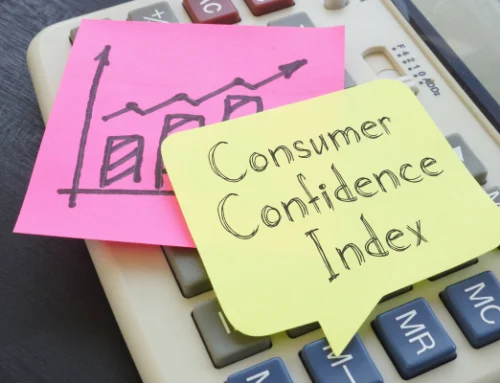Most experts believe we are at the peak of the stock market right now, and we are well overdue for a crash. Be sure your emotional investing habits don’t exacerbate your losses when it comes to your portfolio returns.
When you’re young, buy-and-hold will probably work for you as a long-term investment strategy; that is, if you truly “hold” through market downturns. The trouble starts when you start selling off your investments when markets drop and purchasing them back when markets are high—also known as “emotional investing.” If you’re getting close to retirement, emotional investing can add years to the time horizon required for you to accumulate enough money to actually retire.
What Morningstar Says
Research from Morningstar indicates that individual investors are under-performing the funds they’re invested in. For instance, in the 10-year period from 2003 to 2013, individual investors averaged about 2.5% less than the funds they were invested in. From 1990 to 2010, the average individual investor under-performed the funds they invested in by a whopping 5% each year.
Five percent adds up quickly. According to other Morningstar data, if the markets go down 5%, it takes you about six months to recover—just to break even. If the markets go down 40%, it takes you around 4 to 8 years just to get back to the amount you had before the drop. This is not a good scenario if you’d like to retire in five years.
Why do individual investors make less than the actual funds they invest in?
Fear and Greed
On average, heavy individual traders lag behind the returns of light traders. Their emotions cause them to have the same knee-jerk reactions over and over again, which holds them back from what they could be actually earning.
The reason why emotional investors make lower margins and under-perform their investments or funds is because they sell things off during market downturns out of fear and buy things back during market upswings due to greed. They’re in and out of the market too often. Some emotional investors also buy risky “hot investments,” not because they make sense for their portfolio, but strictly due to fear of missing out on imagined big returns.
Keep in mind that sometimes it’s the opposite. Emotional investors sometimes stay out of rising markets longer than they should because of fear, or stay in too long because they convince themselves a particular investment “will come back.”
When you buy high and sell low, or get in and out of the market at inopportune times based on your hunches, greed, or fears, you are getting a worse return than you would have gotten by hanging on to your investments through the years. When you’re close to retirement, this is a recipe for disaster.
How to Tell if You’re an Emotional Investor
Behavioral finance studies have shown that financial gains trigger the same reward response in the brain as cocaine, while financial losses trigger a hardwired fight-or-flight negative response. This is hard to overcome; it takes real discipline.
Here are some ways you can tell if you are an emotional investor. Don’t feel bad, most people are:
- You make decisions by your gut, thinking that good vibes will help you in the market more than logic or math. You think you can outsmart the market, charm the market, or be luckier than the market.
- You trade stocks constantly. You might lose money in the process, but it feels fun, or it feels like a game.
- Your stock drops a few cents, and you sell because the loss is too painful.
- You are very risk-averse and have heard that “bonds are safe.” When you lose money on bond funds or are told that interest rates are headed up even higher, you can probably expect further losses. You refuse to move the money until your investment “comes back up.”
- You watch the financial reports and ticker tapes throughout the whole day, even though you’re not a financial professional.
- You panic about your investments whenever you hear bad news about national or world events, especially if they’re announced on Twitter.
- You have anxiety and feel scared about your portfolio’s performance every time you log-in to your account.
- The minute you read a newsletter about some up-and-coming hot stock, you make a call to a broker to invest.
- You feel your investments reflect you as a person. For instance, you hold on to an investment that’s “good for the planet” even if it’s not performing.
- Your investment choices are made strictly based on what your friends, family members, or colleagues are invested in.
- You are an active investor and are overly confident in your own research, even if your source of information may be an unregulated newsletter.
- You celebrate gains, but you haven’t sold anything—you’re still invested. Warren Buffett says, “The only price that matters is the price that you bought and the price that you sold.” There’s no reason to break out the champagne until you’re out of the investment, and you made a profit.
- You make too-frequent calls to your financial professional about your account and performance.
First of all, it’s great that you have an advisor, and you should feel free to call them when you have questions or concerns. However, you should have confidence in your advisor, know they have your back, and understand the strategy and reasoning behind the long-term plan they’ve put together and are implementing for you. If you feel compelled to call too often, you may be an emotional investor.
What to do Instead
Don’t do your financial planning or investing by yourself. You should find a financial advisor and retirement planner you truly trust. In order to thwart the tendency toward emotional investing, a good advisor can help you gain your peace of mind and reduce your stress by laying out a clear, math-based investment plan they will follow on your behalf. You’ll know the strategy, so you can relax. Regular plan reviews can help you stay in control.
Find an advisor that will do the proper due diligence and research behind your plan using fintech tools like Morningstar, Theta Research, and Wilshire Compass. Confidence is inspired when your advisor analyzes investment performance and results net of fees. Only true fiduciaries do this—brokers do not. Furthermore, fiduciaries are fee-based and do not make commission on investments or trades. They are lawfully required to put your best interests ahead of their own.


